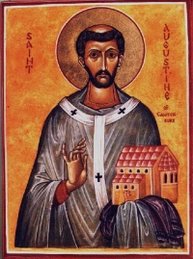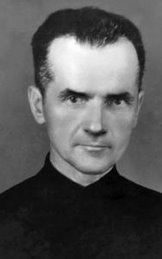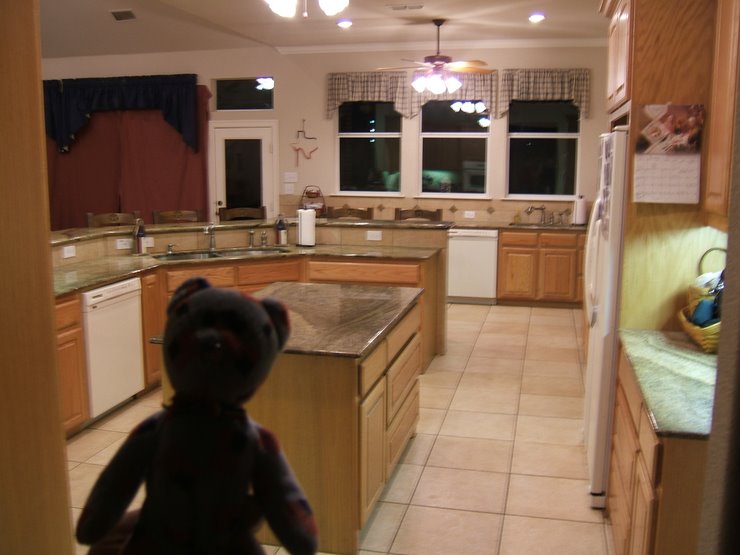
I recently discovered that Henryk Mikolaj Gorecki died on November 12, 2010. May his soul, and all the souls of the Faithful Departed, rest in peace.
Henryk Gorecki, born in 1933, was a Catholic Polish composer of what some refer to as contemporary classical music. I don't know enough about music to have an opinion about the kind of music he composed. All I shall ever remember about him is that he composed one of the most stirring, beautiful pieces of music ever: the Symphony No. 3, Opus 36, better known as the Symphony of Sorrowful Songs.
I first heard this song in the late 1990's when we were living in San Antonio. This was while I was still in the Air Force, and it was on a day when I was on call and didn't have to go to work until 3 p.m. I was listening to the classical music station they had, and Gorecki's Symphony No. 3 was playing. I stopped to listen to it, figuring I could leave as soon as the piece was over.
I ended up being late for work that day.
I had never heard such a captivating piece of music before in my life. Samuel Barber's 'Adagio for Strings' is the only other composition which comes close to it. I called the radio station to find out the name of the piece of music as well as the composer. At first I thought his name was 'Gretzky,' as in the hockey player Wayne Gretzky.
The Symphony of Sorrowful Songs consists of three movements; the first is just shy of 30 minutes, the second is about nine minutes, and the third is about 15 minutes long. The theme of all three movements is loss and death, and the lyrics reflect this. All of the lyrics are in Polish, with the inspiration for each movement's words coming from different sources.
The first movement is based on a lamentation written in a Russian monastery during the 15th century. The voice is that of Mary, seeing her Son Jesus dying on the cross:
Share your wounds with your mother
And because, dear son, I have always carried you in my heart,
And always served you faithfully
Speak to your mother, to make her happy,
Although you are already leaving me, my cherished hope.
No, Mother, do not weep,
Most chaste Queen of Heaven
Support me always.
"Zdrowas Mario." (*)
(Prayer inscribed on wall 3 of cell no. 3 in the basement of "Palace," the Gestapo's headquarters in Zadopane; beneath is the signature of Helena Wanda Blazusiakówna, and the words "18 years old, imprisoned since 26 September 1944.")
(*) "Zdrowas Mario" (Ave Maria)—the opening of the Polish prayer to the Holy Mother
What struck me about this piece is that the prisoner was a Catholic; I doubt anyone else would be writing the opening words of the Hail Mary on the wall of a prison. The other thing that strikes me is that, in contrast to the first movement, here we have the child consoling the parent. Perhaps Helena took some unnecessary risk which resulted in her incarceration. One will never know what her fate was.
III.
The third movement is the hardest one for me to listen to, especially after Theodore's death. In this piece, a mother mourns the loss of a child. Not only is the child dead, but his body cannot be located. The mother, accepting that she will never see her son again, prays that at least he will rest in peace. While the lyrics describe an earthly resting place, one would expect that the mother was thinking more of her son resting in a heavenly place:
Where has he gone
My dearest son?
Perhaps during the uprising
The cruel enemy killed him
Ah, you bad people
In the name of God, the most Holy,
Tell me, why did you kill
My son?
Never again
Will I have his support
Even if I cry
My old eyes out
Were my bitter tears
to create another River Oder
They would not restore to life
My son
He lies in his grave
and I know not where
Though I keep asking people
Everywhere
Perhaps the poor child
Lies in a rough ditch
and instead he could have been
lying in his warm bed
Oh, sing for him
God's little song-birds
Since his mother
Cannot find him
May you blossom all around
So that my son
May sleep happily
Here is the complete Second Movement for your listening pleasure. This piece features a different soloist, and was filmed in Auschwitz:


















1 comment:
I saw this performed in Buffalo and was moved to tears. Indeed, Adagio for Strings by Barber is powerful, and surely inspired...this piece is born of pure pain; there is unfinished healing, leaving one longing. Thanks for sharing this, and may Gorecki rest in the love of God.
Post a Comment